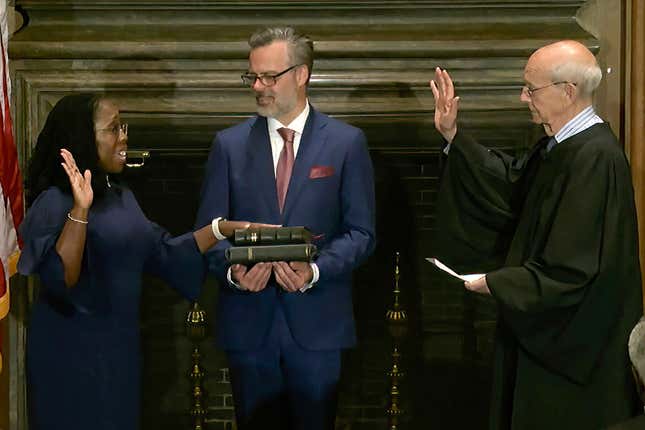
If there was an enduring message from last week’s Root Institute, it was in the Rev. William Barber’s closing remarks, in which he reminded the audience to not be distracted by the sometimes cartoonish personalities behind some of the worst political arguments of our time.
“They don’t like Trump because he’s saying out loud what you’re not supposed to say out loud. But they love the policies,” Barber said. The “they” are politicians and the powerful who know that Trumpism isn’t a new phenomenon but only the most modern rebrand of a strain of cynical politics whose lineage Barber sermonically traced back through the Nixon-era’s “Southern Strategy” and to the states’ rights arguments under which Southern conservatives banded together from Reconstruction through segregation.
Whether the vector was blustering buffoon like Trump, a militant segregationist like George Wallace or a shadowy political operative like Lee Atwater, the goal always was, and remains the same: pick a scapegoat (Black folks, as a rule) and use the threat of their advancement to scare other people into voting for an agenda that only benefits the powerful. And if that means disenfranchising the vast majority of Americans of any stripe along the way, so be it.
This is a story about voting rights, and how millions of us are in jeopardy of losing them if an obscure case coming before the Supreme Court soon goes left.
That case, known as Moore v. Harper, comes from Barber’s home state of North Carolina, where Republican legislators are upset that courts at the state level tossed out their gerrymandered voting map. That’s not unusual: both political parties are guilty of trying to use redistricting to give themselves an advantage—although Republicans have been much more successful at it—and courts at the state and federal level have long held partisan legislators in check by ruling on the legalities of their maps.
What’s different about this case, though, is that some Republicans wanted to lose at the state level so they could try out a new legal strategy in front of the Supreme Court. The idea, per CNN, is to argue that the Constitution’s elections clause gives state legislatures almost total power over elections procedures. If the stacked Supreme Court were to agree, it could open the door for states like Georgia and Texas, which enacted restrictive new voting laws based on baseless theories about voter fraud in 2020, or Florida, where Gov. Ron DeSantis’ new election police force was signed into law this year—to act without fear of reprieve from courts in their states.
Under the theory, state legislatures should be able to set rules in federal elections without being held in check by state constitutions either through interpretation by state courts or by the functioning of commissions created under state constitutional reforms.
Traditionally, legislatures have set ground rules for conducting an election, but have not acted alone or with the final word. Processes set in place have been subject to intervention by election administrators and state courts.
But the strictest reading of the independent state legislature theory says that state courts, when it comes to federal elections, must stay out.
It’s a states’ rights argument that would’ve made former Mississippi Gov. Rees Barnett proud; even at the height of the battle over legalized segregation in the South, when Barnett argued that states’ rights literally existed before the states themselves, he didn’t go as far as arguing that that meant not even Mississippi judges were powerless against the legislature on voting.
More frightening, Republican state legislators wouldn’t stop there. The argument that state courts aren’t explicitly enabled by the Constitution to rein in wayward voting maps would almost certainly be tested for other applications. And if the courts are stripped of the ability to strike down gerrymandered voting districts, the same legislators who drew those districts could, theoretically, keep redrawing them to ensure they hold a majority, accountability be damned.

